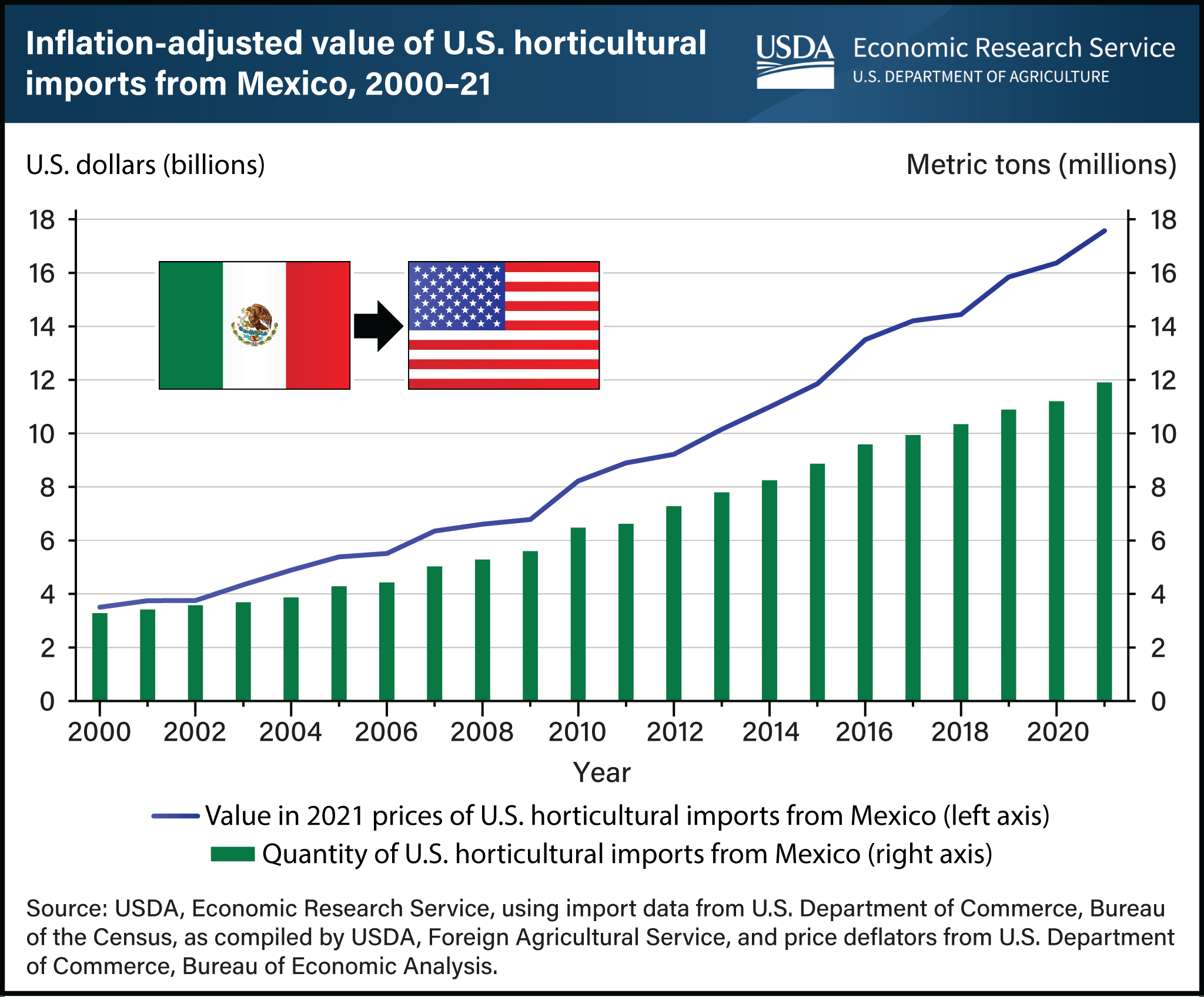Fruit and vegetable imports from Mexico continue upward trend as Mexico’s growers adopt U.S. food safety rules
- by Gregory Astill, Steven Zahniser and Belem Avendaño Ruiz
- 12/14/2023

More than 88 percent of Mexico’s horticultural exports are destined for the United States. The strength of Mexico’s access to the U.S. market is, in part, due to efforts by Mexico’s horticultural growers to adapt to new U.S. food safety standards. In 2011, the United States passed the Food Safety Modernization Act (FSMA), which covers the safety of the entire U.S. food supply chain regardless of whether a company operates on U.S. soil or in a foreign country. In response to FSMA’s new requirements for food safety, Mexico’s horticultural companies made changes to equipment, invested in new infrastructure, and implemented new techniques for food testing. U.S. horticultural imports from Mexico have doubled in volume since FSMA’s implementation in 2011. From 2000 to 2021, these imports grew at a compound annual rate of 8 percent. Adjusting for inflation, the value of imports increased from about $3.5 billion in 2000 to about $17.6 billion in 2021, as expressed in 2021 dollars. By 2021, Mexico supplied almost two-thirds of U.S. vegetable imports and about half of U.S. fruit and tree nut imports. Although mandatory compliance with FSMA’s horticultural growing standards began at the start of 2018, many companies had initiated food safety programs before the laws were enacted in 2011. This chart is drawn from the USDA, Economic Research Service report, How Mexico’s Horticultural Export Sector Responded to the Food Safety Modernization Act, published in August 2023.
We’d welcome your feedback!
Would you be willing to answer a few quick questions about your experience?

